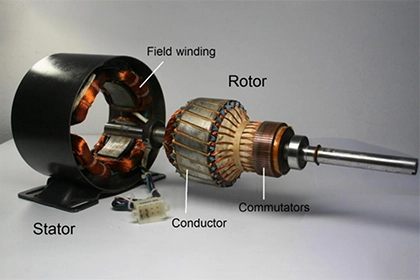
How does temperature affect the efficiency of a motor?
Temperature affects the efficiency of a motor by changing the resistance and conductivity of its components and altering the lubrication properties. High temperatures can cause the motor to overheat and degrade its performance, while low temperatures can increase friction and reduce its efficiency.
The efficiency of an electric motor is how much of the electrical energy supplied is converted into useful work. The temperature has a major impact on motor efficiency, and the right operating temperature usually achieves the highest efficiency.
How temperature affects motor efficiency
- Lower temperatures reduce the resistance of motor wires and components. Resistance causes energy to be dissipated as heat, so lower resistance means less energy wasted and higher efficiency. Even small temperature increases can increase resistance and reduce efficiency.
- The lower operating temperature also reduces friction in the mechanical and moving parts of the motor, such as bearings, brushes, and magnets. This makes it easier for these parts to rotate and do work, reducing the amount of energy lost through heat generated by friction. Lubricants and greases also work best in specific temperature ranges to minimize friction.
- In motors that use magnets, such as AC induction motors or brushless DC motors, lower temperatures help the magnets maintain their magnetic field strength. As the temperature increases, the magnets become less magnetic, so they create a weaker magnetic field for the rotor to interact with. This causes the motor to work harder to produce torque and power, which reduces efficiency.
- The ability of a motor to dissipate excess heat also depends on its operating temperature. Motors are designed to dissipate heat at a certain rate, but if the ambient temperature is too high, the heat will not dissipate fast enough, resulting in higher temperatures. Improving cooling and ventilation, or lowering the ambient temperature, can result in more efficient heat dissipation and motor operation.
Conclusion
While normal operating temperatures typically do not significantly affect motor efficiency for most applications, motor efficiency can be affected or reduced at extreme temperatures. Keeping motors as cool as possible within their design specifications can help maximize efficiency and performance. Temperature control plays an important role in the development of more efficient and higher-power motors.



Leave a Comment